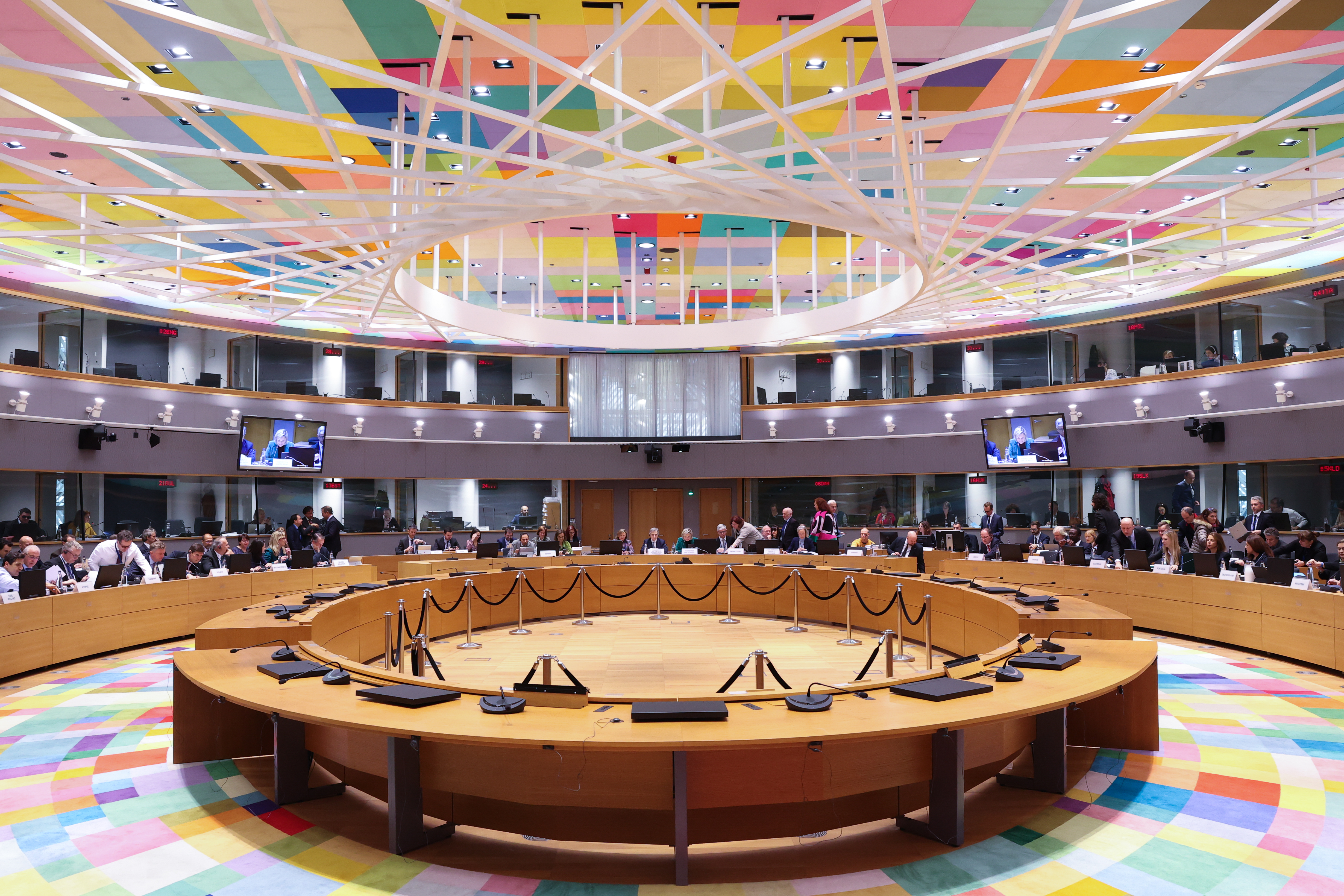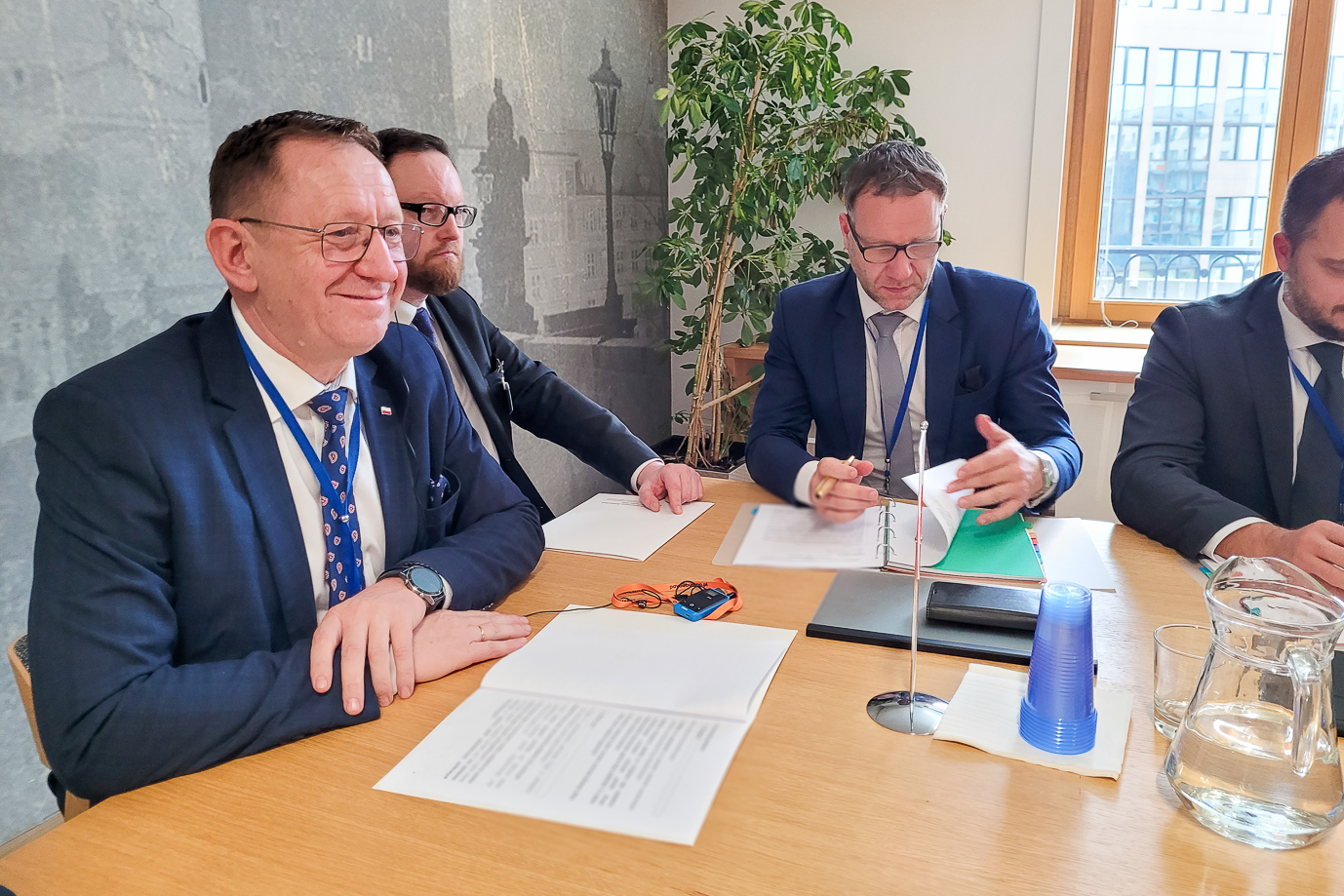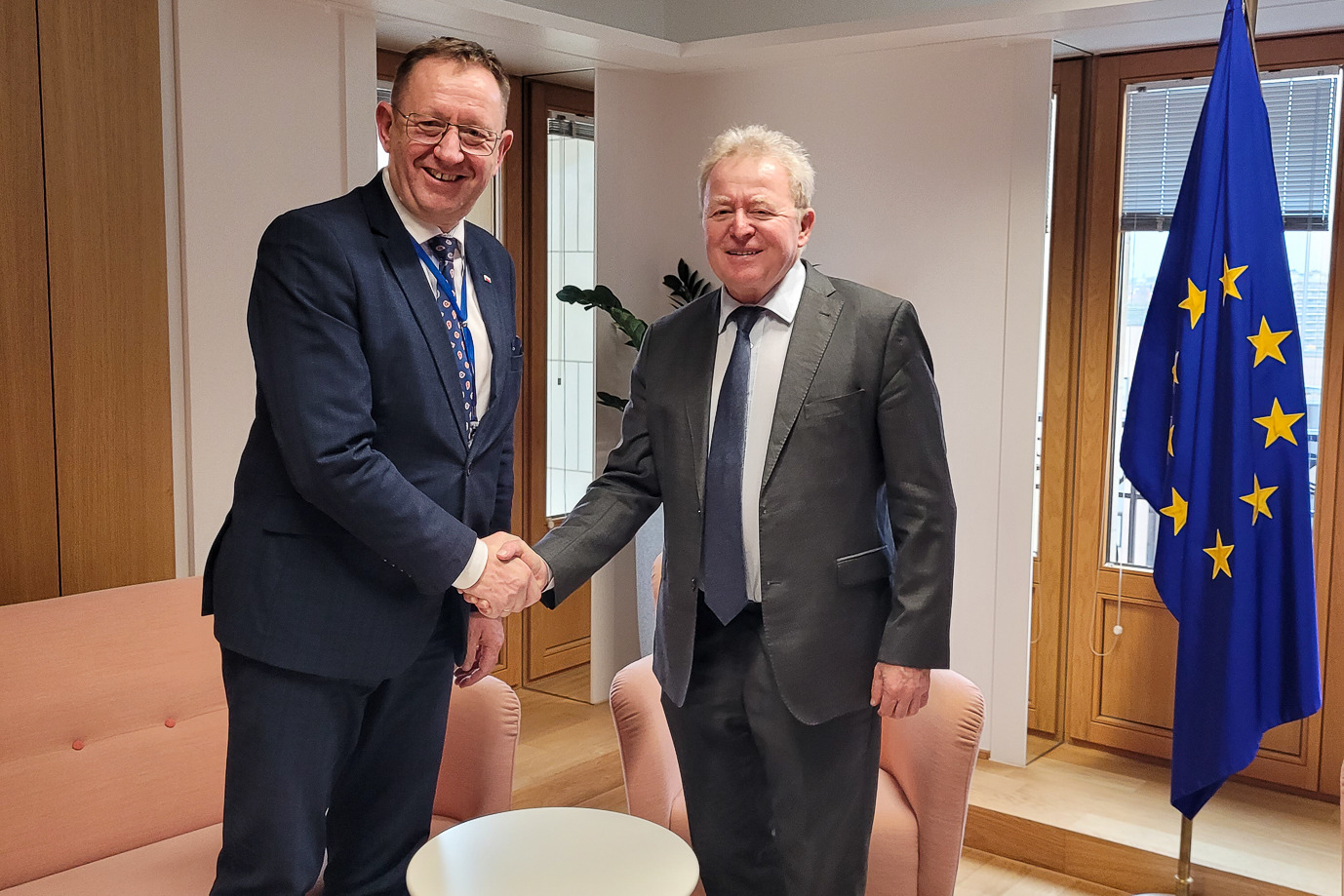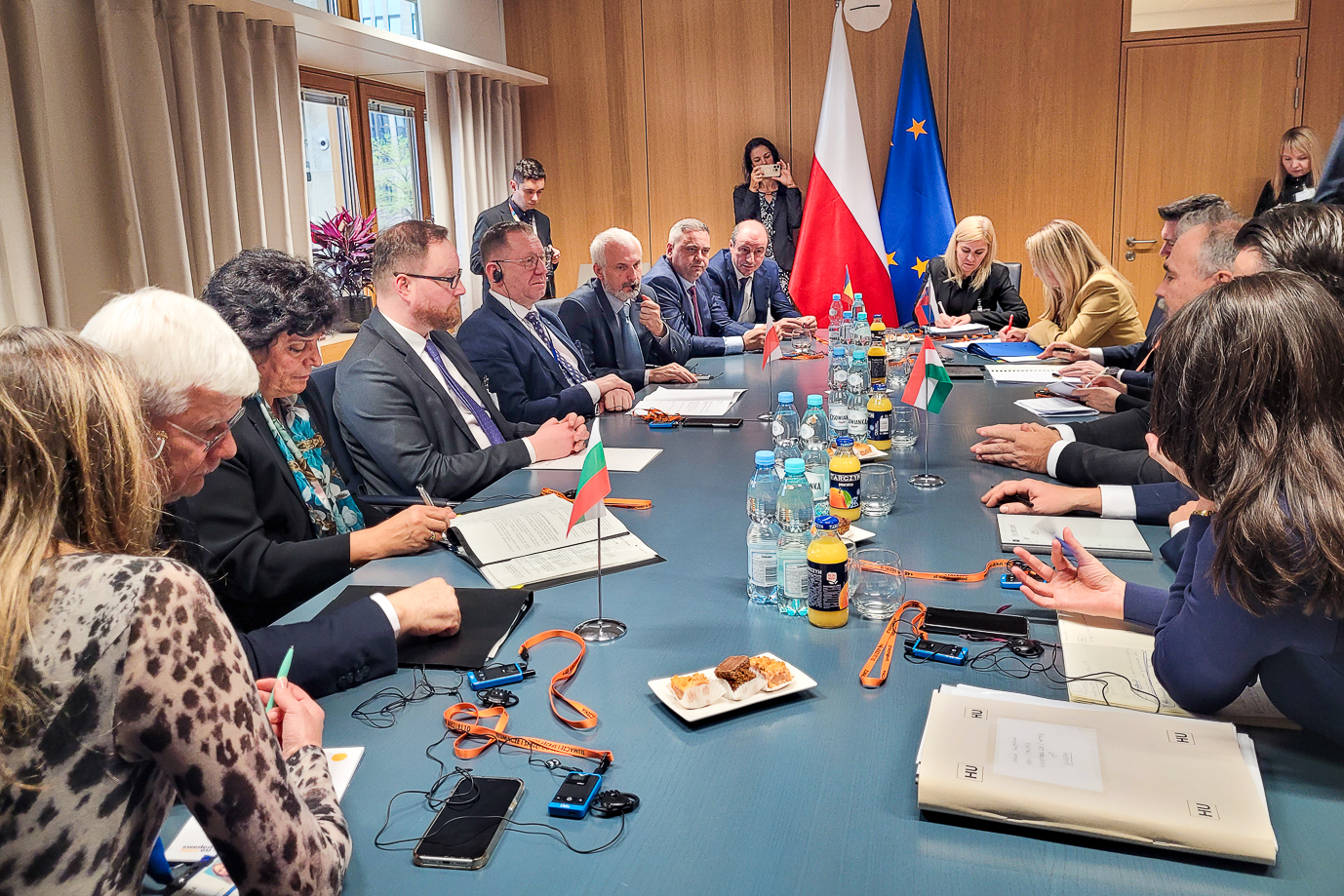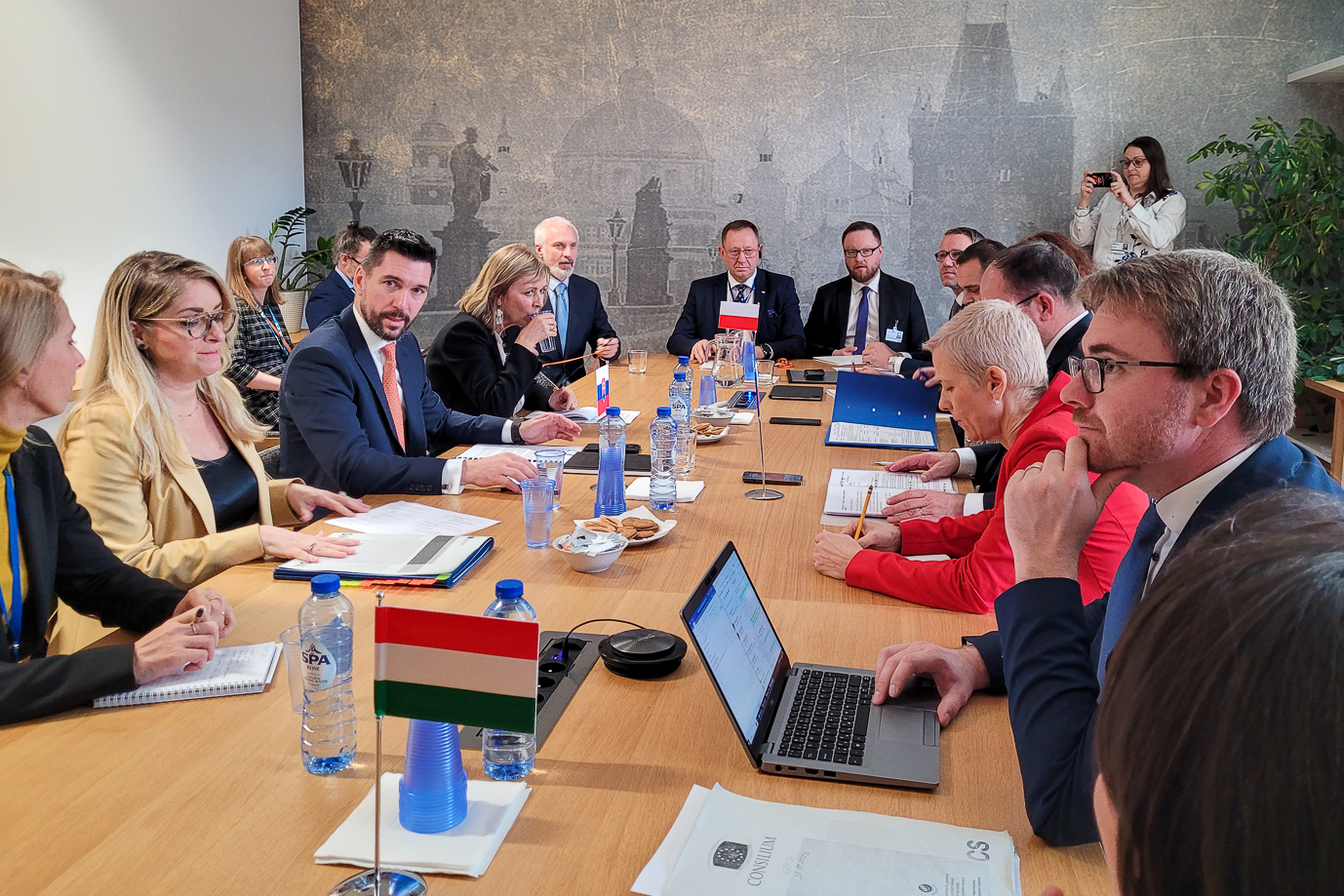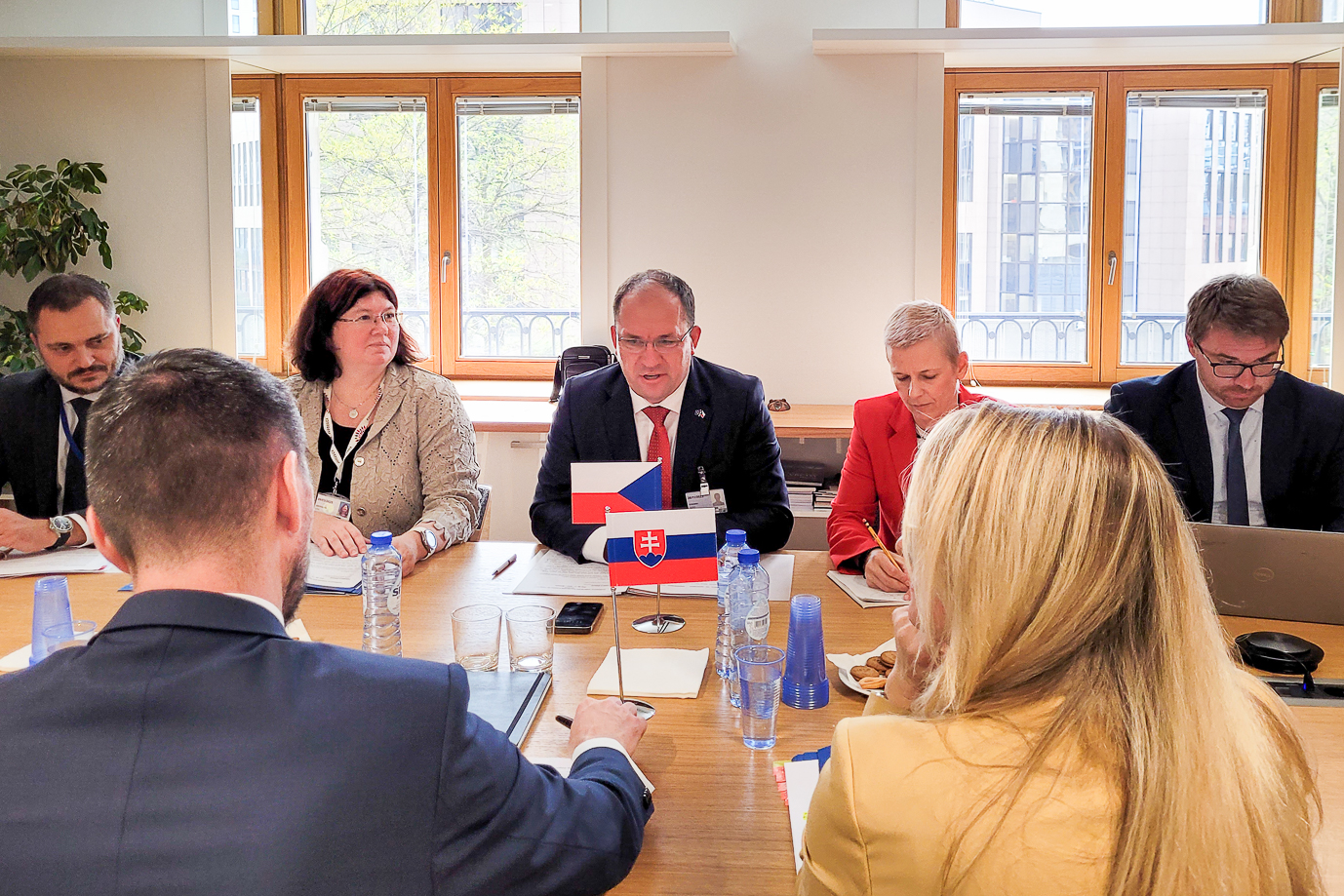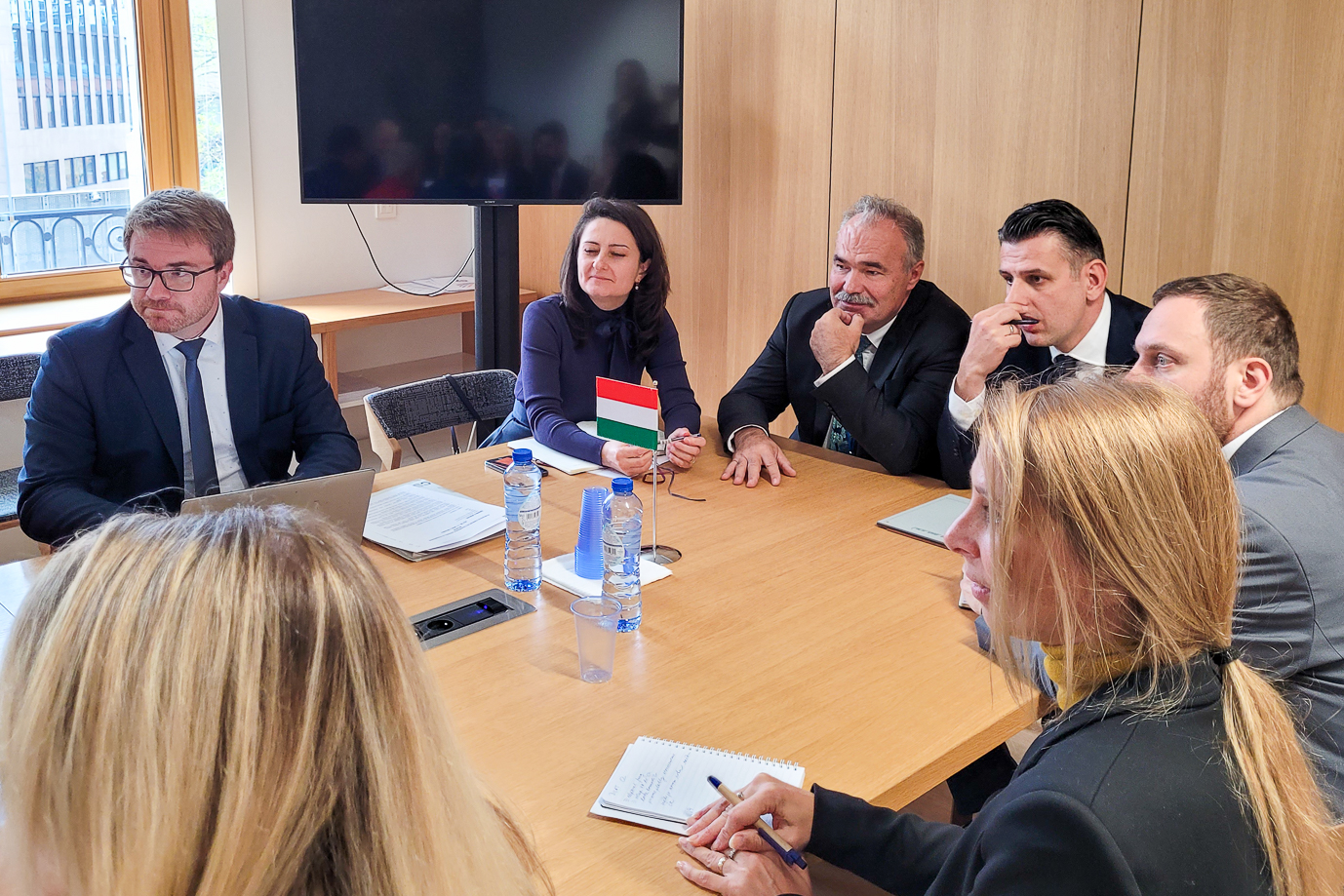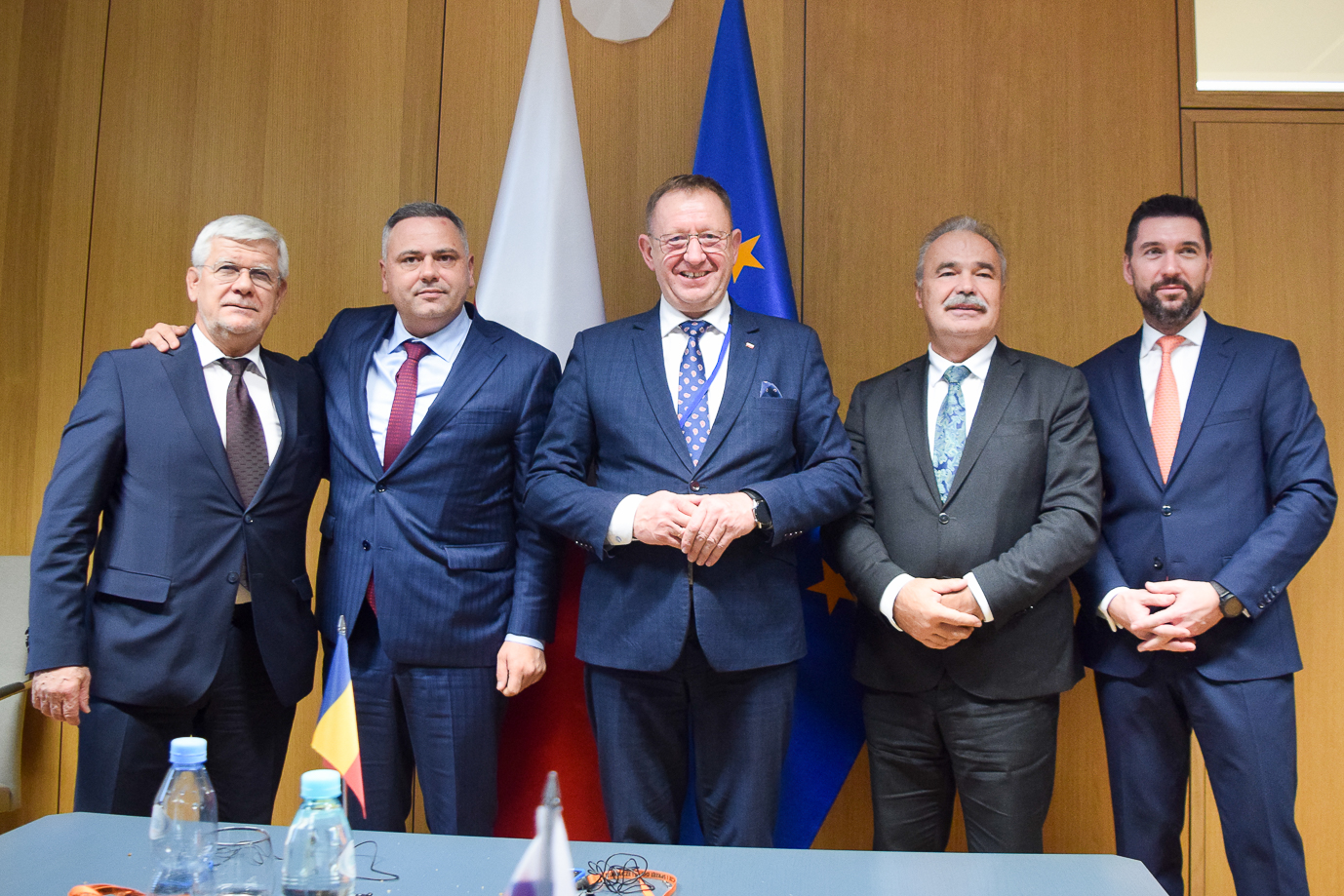The AGRIFISH Council in Brussels – issues of importance for agriculture, forestry and fisheries
21.11.2023
Monday’s meeting of the EU Agriculture and Fisheries (AGRIFISH) Council in Brussels addressed important issues related to agriculture, fisheries and forestry. The Polish delegation was headed by Mr. Robert Telus, Minister of Agriculture and Rural Development.

Fisheries – the fishing opportunities for 2024
The Ministers held their first exchange of views on the fishing opportunities for the Atlantic and the North Sea, and for the Mediterranean and the Black Sea in 2024. The proposals of Regulations presented by the European Commission concerning this issue provided the basis for the discussion.
During the discussion Poland expressed its hopes that all the agreements could be concluded with third countries before the December meeting of the AGRIFISH Council so that the EU fleet would be able to start its fishing operations from January 2024.
Agriculture – the most important topics
The most important topics related to agricultural matters were the Council conclusions on a long-term vision for the EU's rural areas and a proposal for a Regulation on plants obtained by certain new genomic techniques.
Conclusions on a long-term vision for the EU's rural areas
The Ministers of Agriculture unanimously endorsed the conclusions on a long-term vision for the EU's rural areas.
Mr. Robert Telus, Minister of Agriculture and Rural Development, informed that Poland supported the adoption of the conclusions and declared its further involvement in the implementation of the assumptions of the long-term vision for the EU's rural areas.
He expressed his gratitude for addressing this important issue and taking Polish proposals into account, including in particular the consideration given in the conclusions to demographic challenges which rural areas and European agriculture faced and the role of agricultural cooperatives in implementing economic, social and environmental tasks.
The head of the Polish delegation stated that a holistic approach to its funding was of key importance for rural development. In this context, it is crucial to ensure a strong Common Agricultural Policy so as to safeguard food security.
“It is also important to ensure a strong cohesion policy, which would support the CAP in a consistent and complementary manner in funding the infrastructural development of rural areas, the green and digital transitions, and the creation of non-farming jobs in rural areas,” Minister Robert Telus said.
New genomic techniques
The Spanish Presidency informed about the status of work on a proposal for a Regulation of the European Parliament and of the Council on plants obtained by certain new genomic techniques and their food and feed. Information on this issue was also presented by the Croatian delegation.
Mr. Robert Telus, Minister of Agriculture and Rural Development, informed about Poland’s sceptical assessment of the proposal from the European Commission. He stressed that Poland appreciated the efforts taken by the Presidency to work out a compromise proposal, but said that the proposed amendments did not resolve the key issues which raised Poland’s doubts.
“We see no justification for creating special regulations for plants of category NGT 2, which are in fact GMO plants,” Minister Robert Telus stressed.
Referring to the provisions on NGT 1, the head of the Polish delegation stated that we were open to further work to dispel lingering doubts.
Minister Robert Telus said that the following issues were of key importance for Poland: the ability to impose a ban on NGT crops in the territory of a Member State and their impact on organic farming. He added that very important issues included the patenting of NGT plants, the labelling of NGT 1 products and the power of the EC to adopt delegated acts.
The head of the Ministry of Agriculture stressed that Poland did not question the need to modernise agriculture; however, there were doubts as to whether NGTs would be an innovation or a path to monopolisation.
A new role of farmers in rural areas – information from the Italian delegation
The Italian delegation presented its information on the strengthening of the role of farmers in rural areas. This note was also supported by Austria, Finland, France, Greece, Latvia, Poland and Romania.
The signatories called on the EC to strengthen the farmers’ role in these areas, to respond to the challenges faced by agriculture, even if it required changes of law, to ensure adequate funding under the CAP for keeping agricultural activities and those related to agriculture in rural areas, and to carry out a comprehensive stock-taking of the Green Deal legislation and its impact on EU agriculture, as well as on the strategic autonomy and food security of the EU.
Poland informed that it supported the theses presented in the report. Action should be taken to maintain the position of the EU as one of the major global food producers. Consideration should also be given to the consequences of the war in Ukraine for the single market and the challenges which agriculture and rural areas will face as a result of an expansion of the EU.
Poland stressed that action should also be taken to balance the environmental and climate objectives and the rural development challenges; in particular, those challenges that result from adverse demographic changes, including depopulation and ageing of society. The EU policies need to target these challenges to a greater extent. Therefore, action should be taken to ensure adequate funding as part of the present and future CAPs, with consideration given to the specificity of regions.
A partial application of the GAEC 8 standard in 2024
The French delegation presented to the Council its information about a partial application of the GAEC 8 standard in 2024. The note was also supported by the delegations of Bulgaria, Croatia, Cyprus, Estonia, Greece, Portugal, Slovenia, Slovakia, Hungary and Italy.
The presented proposal concerned a derogation from the GAEC 8 standard in respect of a minimum proportion of arable land devoted to non-productive areas and features. It would consist in enabling the implementation of the standard solely by growing catch crops and nitrogen-fixing plants (7% of arable land), without the need to have non-productive land, including set-aside land.
Poland informed that it was justified to keep the existing derogations from the GAEC 7 and 8 standards in 2024, enabling farmers to be more flexible in taking their production-related decisions. In the opinion of Poland, the requirements of GAEC 7 and 8, limiting the possibilities of implementing agricultural production, will contribute to a deterioration of the economic situation of the farmers in the European Union, among others, by limiting the possibility of compensating for lower prices by the implementation of production.
Poland supports a full derogation from the application of the GAEC 7 standard and a derogation from the application of the GAEC 8 standard, as this would enable the implementation of production on set-aside land, in accordance with its position presented earlier.
Forestry
During a public session, the Commission provided the Ministers with information on the implementation of the EU forest strategy for 2030. Mr. Robert Telus, Minister of Agriculture and Rural Development, stressed that the implementation of the new forest strategy should primarily take into account the competence of Member States in forest management and, as a result, also the local conditions and the specificity of forestry and forest management at the national level.
“The cooperation between the Commission and the Member States should be based on a mutual dialogue and take into account the positions of the Member States,” the Minister added.
The head of the Polish delegation stated that the key decisions on European forests and forestry should be taken as part of the agricultural agenda and that the Standing Forestry Committee should remain the main forum for cooperation.
Meetings on the sidelines of the Council sessions
On Poland’s initiative, 5 frontline states, i.e. Poland, Bulgaria, Romania, Slovakia and Hungary, met on the sidelines of the Council meeting.
Mr. Robert Telus, Minister of Agriculture and Rural Development, stressed that we maintained the cooperation among the frontline states to protect our agricultural markets against destabilisation. He also reminded that Poland imposed a permanent ban on cereal imports from Ukraine in order to protect the Polish agricultural markets against destabilisation caused by an influx of Ukrainian cereals.
Mr. Robert Telus, Minister of Agriculture and Rural Development, also participated in a meeting of the Agriculture Ministers of the Visegrad Group (GV4), during which they addressed the items of the Council agenda and important issues related to agriculture.
Referring to the situation in the agricultural markets and Ukraine, the head of the Polish delegation stressed that we were strongly developing the solidarity lanes. He added that this was an important issue, not only for Ukraine and the EU, but also for the whole world. It is the most important to ensure that agricultural products go where they should.
Minister Robert Telus also added that the unilateral ban imposed on cereal imports on 15 September 2023 should be in effect until an EU solution, which we were very much looking forward to, was adopted.
Bilateral meetings
Mr. Robert Telus, Minister of Agriculture and Rural Development, also talked with Commissioner Janusz Wojciechowski about the current situation in agriculture.

